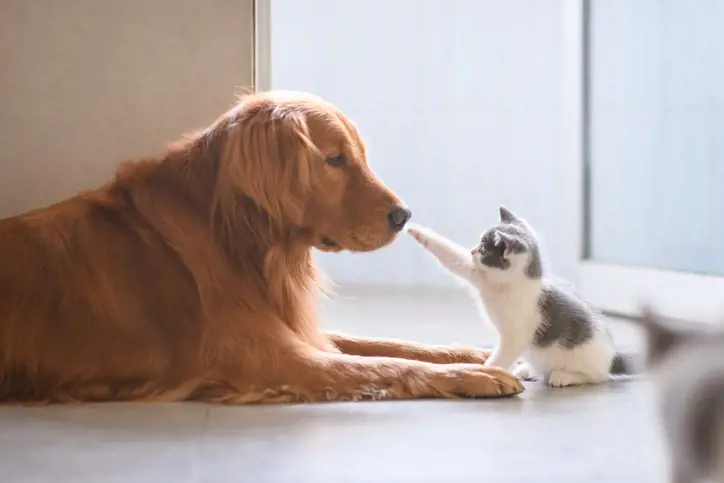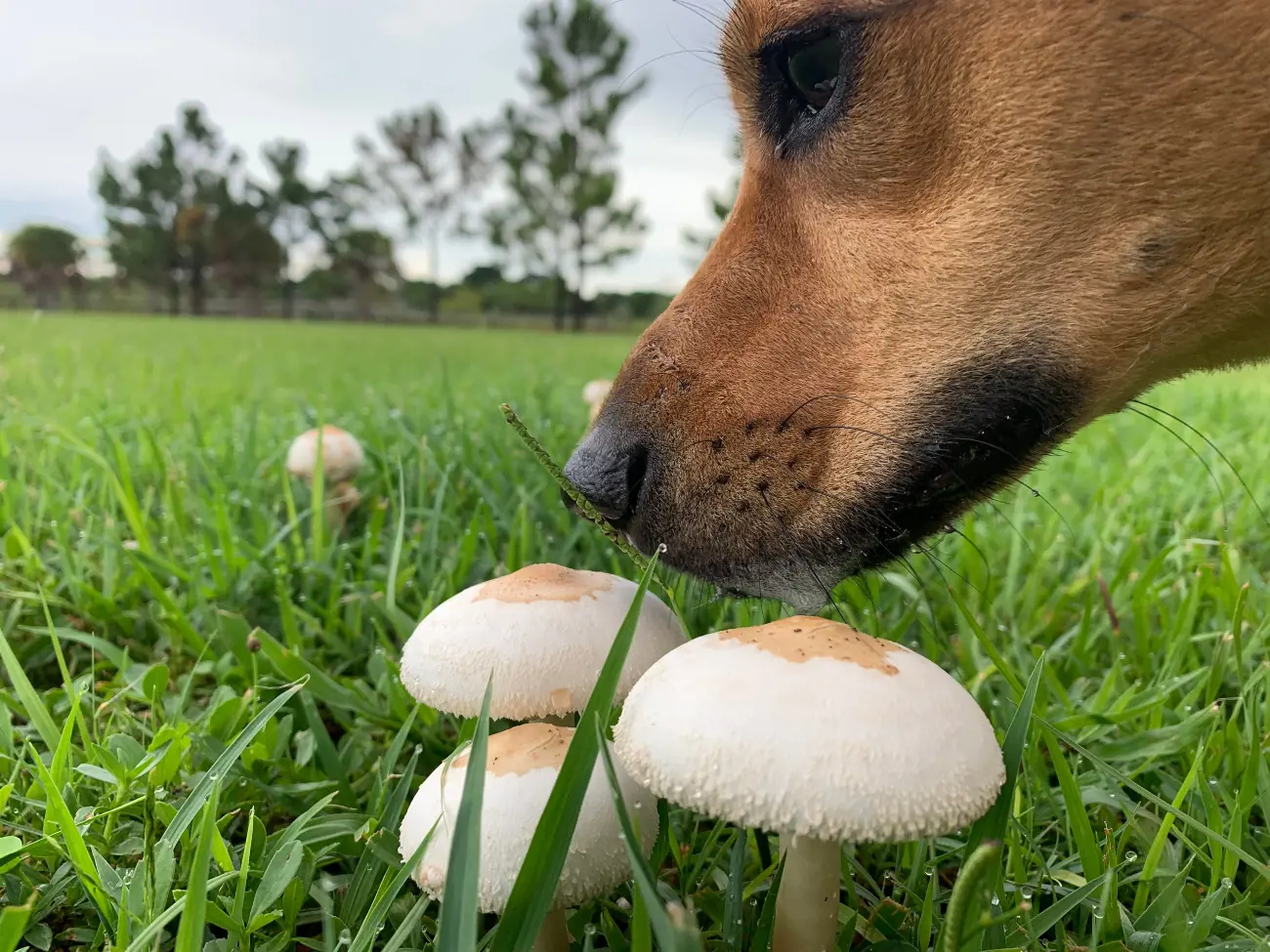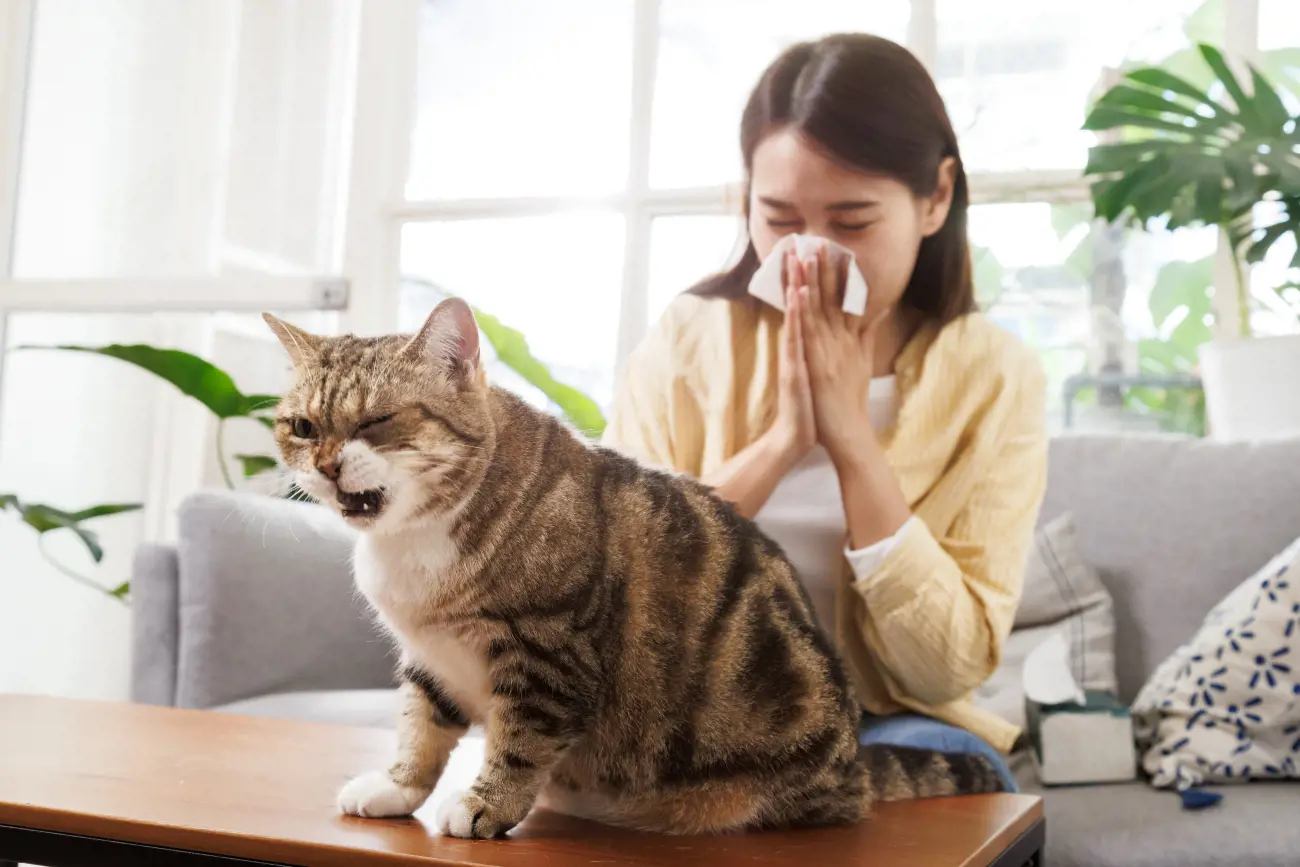How to care for your new kitten
26th November, 2019

Table of Contents
Those big eyes! That fluffy coat! Those wobbly legs! When you bring your new kitten home, you’ll probably just want to watch it and cuddle it all day long.
However, taking on a young kitty is a serious responsibility – no matter how much your new feline friend makes you giggle.
Read on for our top tips on how to care for your new family member, and how to make sure all the dogs & cats in your home are covered through pet insurance.
What to do when you first bring them home
Put yourself in your kitten’s place. All it’s known so far is its mum, its litter-mates, and one or two rooms. It’s used to snuggles, playfights, milk on tap, and the smells and sounds of one household.
Fortunately, kittens are inquisitive and adaptable creatures. Your new ball of fur will likely soon be loving your home just as much as its old one – if you, its new owner, manages the transition well.
First, you should prepare your home before introducing your kitten. If possible, give it a room of its own for the first few days or weeks, or at least a quiet corner.
It will need space to play, explore, eat, sleep, use a litter tray – and hiding places where it can feel secure.
Buy all the necessary equipment and set it up in advance of your kitten’s arrival. You’ll need food and water bowls, two litter trays, something soft to sleep on, a scratching post and toys.

Smooth the transition for your new cat by asking its current owner what food it is currently eating, and what litter it is using.
The current owner should also be happy to provide a blanket or cloth that smells of the mother cat, which will reassure your new kitty as it settles into its new domain.
When you bring your kitten home, put the cat carrier down in the space you’ve prepared, open the door, and leave your kitten to it for a while.
Some kitties will cower inside, while others might rush straight for the nearest hiding place.
Be patient – your kitten will eventually emerge, though it may take a few weeks before it’s really comfortable in its new surroundings.
Those early days of exploration are a potentially hazardous time for young moggies, who are immensely inquisitive but unsteady on their paws. Remember to cover all the pets in your household with Purely Pets insurance.
How to introduce them to your other pets
Pretty soon, your kitten will be finding its paws in its new environment. That’s the moment to start gentle introductions with your other cats or dogs.
It’s vital that you handle this socialisation well, as first impressions count! If you rush it, or handle it badly, you increase the chances that your pets will feel threatened by one another, creating a long-term headache for you.
Remember that scent is a very important sense for felines and canines alike. While keeping your two animals apart, stroke them both without washing your hands in between so that they smell the other animal. Swap bedding between them, and even swap the areas you keep them in and let them explore and sniff!

When you’re ready to introduce them, pick a neutral area where both animals have space to run away. Ideally, set up some kind of a barrier – a tall stairgate is ideal, or keep your kitten in a large crate.
Let them both approach the barrier in their own time and keep these initial meetings brief. If you provide both pets with food, that helps reinforce a positive association.
If either cat or kitten seems frightened or hisses, this is normal – but also a sign that you should take things more slowly.
It’s a good idea to take your dog for a walk before introductions so it is calm – no new kitty wants to be confronted by an excited Labrador, however friendly your pooch’s intentions! If it’s a large dog, or likely to chase, keep it on a lead during the first meetings.
By following these steps, you should avoid any serious problems. However, make sure you’ve got all your cats & dogs covered with just in case.
Dos and don’ts for first-time kitten owners
It’s tempting to think that because they don’t need walks, cats are zero-maintenance animals. While they are certainly easier than dogs, they’re not totally trouble-free and require some careful handling.
These dos and don’ts should give you an idea of what you should do to be the owner that your kitty deserves.
Do keep food bowls and litter trays separate.
Cats are hygienic creatures, and don’t want to eat where they can see or smell their litter trays. If you put them too close to their food and water bowls, they may even choose to go to the toilet elsewhere – which is unlikely to be a place you’d choose for them!
Do block off nooks and crannies.
Your kitten is an explorer – but not always an escapologist! While it’s getting used to your home, it’s best to block off areas where it could get stuck: behind the fridge, between the bookshelf and the wall, under the kitchen cabinets…
Do provide materials or posts for it to scratch.
If you don’t and it scratches your furniture or banisters, you’ve really only got yourself to blame.
Do get it microchipped.
It’s quick and inexpensive, and helps you get reunited with your kitty if it gets lost. Collars are also a good idea, but kittens may well wriggle out of them.
Do get your kitten spayed or neutered.
Kittens as young as four months can get pregnant, and there are a lot of unwanted cats in the world. Even though your kitten seems tiny at that age, take it to the vet for a quick and simple procedure that is very much in its long-term interests. If you happen to own a puppy too, check out how long is a dog pregnant for some helpful tips.

Don’t let it out too soon.
Certainly not before it’s vaccinated, neutered and microchipped – see above. Keep it inside for the first few months, then start letting it out under careful supervision.
Don’t yell or hit your cat.
It won’t stop the bad behaviour – in fact, by frightening your kitten, you’re likely to make it act worse. While cats may not be as trainable as dogs, they’ll still respond to rewards and even clicker training.
So show your cat what you want it to do and give it a treat when it gets it right. If you want it not to do something – eg climb up your curtains – you’ll probably have to find a way of preventing it from doing so.
Don’t leave young children alone with your kittens.
Small kids can goad animals and cornered kittens can scratch and bite. Not a good mix!
Don’t expect your children to care for the cat.
Sure, they may fill up its water bowl and feed it once in a while, and they’re bound to love playing with it and stroking it. But don’t cave in to kiddie pressure for a kitten unless you’re absolutely sure that you, the adult, can take responsibility for it.
Don’t feed your kitten the wrong food.
If you let it eat from the table while you have a meal, it will be trying to steal your food every dinnertime. That stops being cute and starts being bothersome quite quickly. Plus, some human foods, such as onions and chocolate, are poisonous to cats, so you should stick to providing special kitten or cat food.
Make sure you have to cover any accidents!
Don’t leave it alone for too long.
If you know you’ll be out of the house for long periods, for example to go to work, then arrange for a cat sitter to come round during the day. Better still, get two kittens to keep each other company – you know you want to!
Signs of illness

As a new kitten owner, you’re bound to have more than your fair share of worries about your new pet.
It’s a huge responsibility you’ve taken on, and you undoubtedly want to do your very best by your new family member. Yet it can be hard to work out what's normal, and what's not.
New kittens are tiny, and very vulnerable. You should get a vet check before you agree to purchase, or if this isn’t possible book one in as soon after purchase as possible. Vaccinations and flea and worm treatment are essential, too.
Once you’ve taken care of those fundamentals, look out for the following warning signs:
- Sneezing, runny eyes and nose, wheezing or coughing could be signs of an upper respiratory infection, which are common in young kittens – and extremely contagious. Keep an eye on your poorly pet and contact your vet if it doesn’t improve or it has any additional worrying symptoms.
- Limping is a clear sign of injury. While your kitten may bounce back within a few days, it could also be badly hurt. Pet insurance cover will cover your animal for accidental injury, so see your vet as soon as possible.
- Lack of appetite has many causes, and it’s likely your kitty will be back at its food bowl in no time. However, because newborn animals are so tiny, they’re very vulnerable to the effects of going without food. Encourage your kitten to eat and consult a vet if it refuses.
- Diarrhoea that lasts for more than a day or two is a sign you should take your kitty to the vet immediately. While it may just be down to worms, a change in diet or stress, tiny animals cannot withstand the dehydration effects for very long. Plus, it could be a sign of a more serious illness.
- Lethargy is hard to imagine when you see your kitten leaping about, falling off furniture and tumbling over its own tail. However, it does happen, and it’s a sign that something’s wrong – possibly seriously. Of course, healthy kittens do spend much of their time sleeping, but if that’s not balanced out by a good deal of bouncing around, or if they seem uninterested in things when they’re awake, then consult your vet.
- Scratching is most probably due to fleas or ear mites. Make sure all animals in your household are treated on a regular basis to prevent serious infestations building up.
- Vomiting can look alarming but is probably just a sign of over-eating! Give your kitten small, regular meals, particularly while it’s still tiny. Of course, if it doesn’t seem to be holding down any food, or if it has other symptoms, then give your vet a call.
- White or pale gums is a pretty sure-fire sign that something’s wrong. One likely cause is anaemia, which is not uncommon in small kittens and can even be the result of a serious flea infestation. Shock or internal bleeding caused by injury are other possible causes. Your vet may examine your kitten and carry out tests to find the cause.
Remember – cats are adept at hiding the early symptoms of illness, so keep a close eye on them for the first few weeks.
Of course, you may spot another symptom not mentioned above, or perhaps just have an instinct that your kitten’s not quite right. Its condition could worsen fast, so it’s better to be safe than sorry.
With om Purely Pets, you can contact a 24-hour Vet Helpline to get further advice.
Get a quote today

Your fluffy new feline will bring endless joy to your family – if you lavish it with love and care.
Multi-pet insurance from the specialists at Purely Pets helps you keep the non-humans in your home happy and healthy.
You can choose a Bronze, Silver or Gold policy depending on your pets’ needs and your budget, providing lifetime cover for as long as you go on renewing the policy.
Cover is included for vets’ bills for illnesses and accidents, loss by theft or straying, special diets and complementary treatment.
Get a quote today to get your kitty covered.
Helpful Pages
Recent Posts
Pet Insurance Quote
- 98% claims paid *
- Claims paid directly to vets
- 24/7 vet video consultations
- Interest free monthly payments




